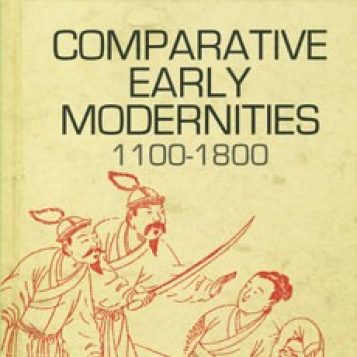Director, Program in Transcultural Studies; Professor, English Language and Literature
dporter@umich.eduOffice Information:
3219C Angell Hall
phone: 647-7477
hours: Thurs 3-4 and by appointment
Seventeenth and Eighteenth Century British; Travel; Technology and the Humanities; Postcolonial Studies; Graduate Faculty; Novel and Narrative; Comparative Literature; Material Culture; British; Department Administration
Education/Degree:
Ph.D., Stanford 1996Highlighted Work and Publications

Comparative Early Modernities: 1100-1800
Edited by David Porter
Recent historical scholarship has shown the way towards a geographically capacious conception of the early modern world. Featuring essays by nine leading scholars of early modern Asia and Europe, Comparative Early Modernities casts aside the legacies of European exceptionalism to reveal the interconnected multiplicity of the early modern world and of the variety of unexpected pathways linking these histories to the evolving modernities of the 21st century. In their fresh and provocative examinations of topics in literature, philosophy, art history, and political economy, the authors transform...
See More
The Chinese Taste in Eighteenth-Century England
David Porter
Eighteenth-century consumers in Britain, living in an increasingly globalised world, were infatuated with exotic Chinese and Chinese-styled goods, art and decorative objects. However, they were also often troubled by the alien aesthetic sensibility these goods embodied. This ambivalence figures centrally in the period's experience of China and of contact with foreign countries and cultures more generally. David Porter analyzes the processes by which Chinese aesthetic ideas were assimilated within English culture. Through case studies of individual figures, including William Hogarth and Horace Walpole... See More
